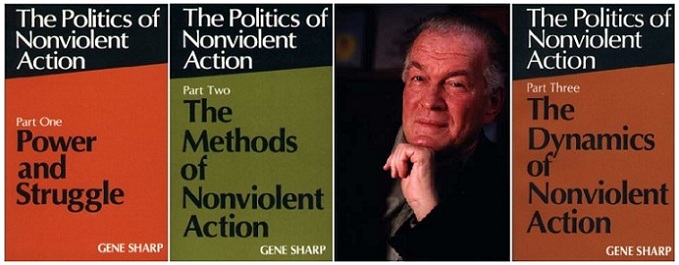Only two strategic practitioners have covered themselves with glory in the past month:
- Col. Muammar Muhammad al-Gaddaffi, sartorial dictator of the Great Socialist People’s Libyan Arab Jamahiriya
- Carlos Irwin Estevez, Latino actor best known for his long-running role as “Charlie Sheen”, younger brother of the Emilio Estevez best known for naming the National Hockey Association’s Anaheim Mighty Ducks.
If we accept Professor Lawrence Friedman’s recent proposition that “strategy is the creation of power”, both now and in the present, than no one has strategized better than Mad Mo and Crazy Carlos. They both show an intuitive grasp of this piece of ancient strategic maxim: if all you have is the Crazy, be the Crazy.
Your enemies will be so mesmerized by someone showing the Crazy in public that they’ll be drawn into your trap like lemmings to a lemming-zapper.
Mad Mo and Crazy Carlos look to be having the last laugh.
An honorable mention goes to Saddam Hussein, Lt. Gen. Raymond Odierno, and James Tiberius Clapper. While Saddam and Kaddaffi are proven losers in making war on the people of other countries, they’ve done banner work making war on the people of their own countries. Odierno successfully drew on Saddam’s plan for crushing a revolt in Baghdad during the battle for that city in 2008:
At about the same time Odierno was targeting the Baghdad beltway, he tasked his staff to find out how Saddam Hussein had defended Baghdad against the many secret cells and gangs that wanted to upend his regime. The answer came back: Saddam had always maintained a complex perimeter around Baghdad that on paper looked like a series of concentric circles. Saddam had posted his Republican Guard in various towns that ringed the capital, and inside the city, he had stationed his Special Republican Guard. If it had worked for Saddam, thought Petraeus and Odierno, it might work for them against the insurgents.
Saddam peaked before his time. He might have made a living as a COIN lecturer at COIN seminars with a few different career choices.
Hosni Mubarak was apparently trying to run a play from the Saddam playbook too but he’s no Muammar Qaddaffi.
James Tiberius Clapper wins his asterisk for accidentally speaking the truth in a congressional hearing. Take pity on Clapper when he’s begging for COIN around downtown Washington after losing his own battle of the beltway.
The president may have made the list if he’d merely repeated the line “We expect all parties to respect the Universal Declaration of Human Rights to which they are a signatory.” and refused to do anything more without a UN Security Council Resolution. Unfortunately BO gave into political pressure and indulged in his Nerd Quotes Eighties Action Movie Lines schtick which always falls flat. If he’d ducked behind the principle of Wilsonian collective security he would have achieved the only certain strategic result Wilsonian collective security ever guarantees: collective inaction.
And that’s what his strategy was all along.
Maybe he’ll have better luck with his NCAA bracket picks.


